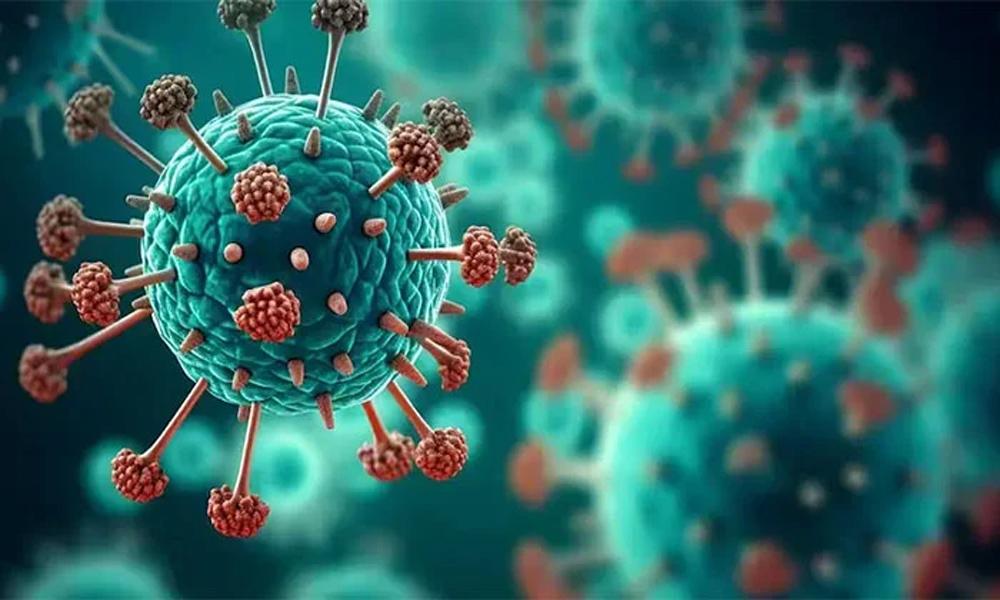Virus mainly affects respiratory system, its victims experience symptoms similar to common cold, flu


Beijing: The number of people falling ill with the human metapanovirus (HMPV), which affects the respiratory system, is increasing in China.
According to Chinese authorities, they are monitoring the spread of the virus and there is a possibility of an increase in cases of some respiratory diseases during the winter.
According to various reports, the virus is spreading in China among children aged 14 and below.
Apart from China, Malaysia has also seen a significant increase in HMPV cases in recent months, while cases have also been reported in India.
In 2024, 327 cases of this virus were reported in Malaysia, while the number was 225 in 2023.
So far, seven cases of this virus have been confirmed in India.
Videos are also circulating on social media showing a hospital in China being overcrowded with people infected with the flu.
But recently, a spokesperson for the Chinese Foreign Ministry said that respiratory diseases are more common during the winter.
According to the spokesperson, the severity of the disease caused by this virus does not seem to be very serious and the rate of people getting sick is the same as last year.
He said that the Chinese government assures to take care of the health of citizens and foreigners.
Recently, China's official medical organization gave details and prevention tips about this virus at a press conference.
What is HMPV?
It is mainly a virus that affects the respiratory system, and its victims experience symptoms similar to the common cold and flu.
Usually, the severity of the disease caused by this virus is mild, but it can also lead to serious complications such as pneumonia, especially in children, the elderly, and people with weakened immune systems.
Symptoms of HMPV
The symptoms of HMPV infection include cough, fever, runny nose, shortness of breath, and sore throat.
These symptoms often appear three to six days after exposure to the virus. If a patient is more ill with HMPV, they may need to be hospitalized.
The duration of the illness can vary from person to person, depending on the severity of the illness, but patients usually recover within a few days, like other respiratory illnesses.
Most patients infected with this virus recover within a few days while staying at home, as the severity of the illness is mild in most cases.
According to the Cleveland Clinic in the United States, young children, people over 65 years of age, and people with weakened immune systems are at higher risk of severe illness.
Often, more severe symptoms can be experienced when infected with HMPV for the first time, which is why young children are at higher risk.
However, after the first time, people develop some immunity to the virus, after which, if they are infected in the future, they will experience mild symptoms similar to the common cold.
How this virus spreads?
HMPV can be spread by contact with an infected person.
Similarly, it can also be spread to healthy people by touching contaminated surfaces, coughing, sneezing, or shaking hands with sick people.
If the symptoms are worse, sick people experience severe coughing and shortness of breath and in this case, immediate medical attention should be sought.
How to prevent it?
You can prevent the spread of HMPV and other respiratory viruses by following the precautions listed below.
Wash your hands often with soap and water for at least 20 seconds.
Avoid touching your eyes, nose, or mouth with dirty hands.
Avoid getting too close to sick people.
People who have cold-like symptoms should cover their mouth and nose when coughing and sneezing.
Avoid sharing eating and drinking utensils with others.
Avoid touching other people when you are sick.
If possible, stay home when you are sick.
Try to keep contaminated objects clean.
Treatment
There is currently no vaccine to prevent the spread of this virus, and there is no cure either.
Usually, medications are given to reduce the severity of its symptoms, which control fever and pain.

Pakistan, Qatar vow to further strengthen strategic partnership
- 18 hours ago

How exorbitant concert ticket prices became so normal
- 10 hours ago

Hank Green will gladly take billionaire money for education videos
- 12 hours ago
Pakistan set 165-run target for England in Super 8 clash
- 20 hours ago

How many AIs does it take to read a PDF?
- 12 hours ago

You got your democracy back. Now what?
- 10 hours ago

Why a Republican Supreme Court struck down Trump’s tariffs
- 10 hours ago

Web scraper sued by Google claims Google is the one scraping the web
- 3 hours ago

England defeat Pakistan by 2 wickets and reach T20 World Cup semi finals
- 18 hours ago

Italy to issue 10,500 work visas for Pakistan’s skilled workers,says Mohsin Naqi
- an hour ago

Govt launches 'No Child Left Behind' campaign for out-of-school children
- 7 minutes ago

Meta will ruin its smart glasses by being Meta
- 3 hours ago




